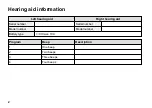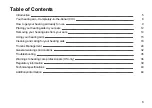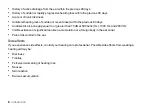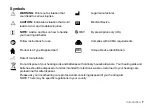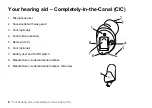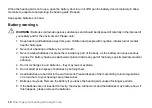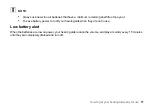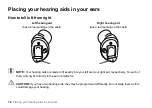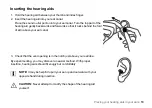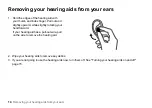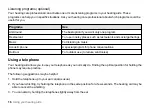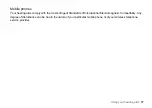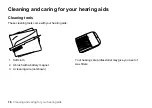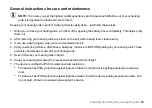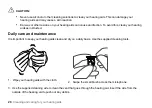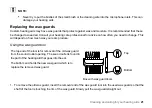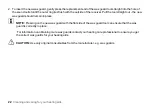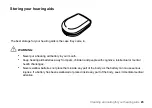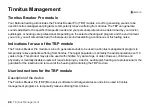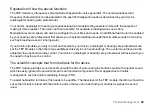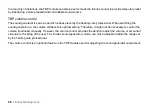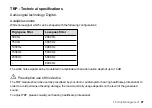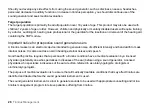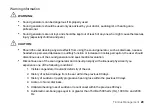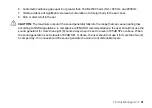
Listening programs (optional)
Your hearing care professional can activate one or more listening programs in your hearing aids. These
programs can help you in specific situations. Ask your hearing care professional about which programs could be
useful for you.
Programs
Use
All-Around
The best option if you want only one program.
Restaurant
For use in noisy places such as restaurants and social gatherings.
Music
For listening to music.
Acoustic phone
A special program for phone conversations.
Outdoor
For outdoor use (to reduce wind noise).
Using a telephone
Your hearing aid allows you to use your telephone as you normally do. Finding the optimal position for holding the
phone may require practice.
The following suggestions may be helpful:
1. Hold the telephone up to your ear canal as usual.
2. If you hear whistling, try holding the telephone in the same position for a few seconds. The hearing aid may be
able to cancel the whistling.
3. You can also try holding the telephone slightly away from the ear.
16
Using your hearing aids
Summary of Contents for Imagine Custom
Page 1: ...User guide Beltone Custom hearing aids ...
Page 4: ...4 ...
Page 45: ...Notes Additional information 45 ...
Page 46: ...Notes 46 Additional information ...

